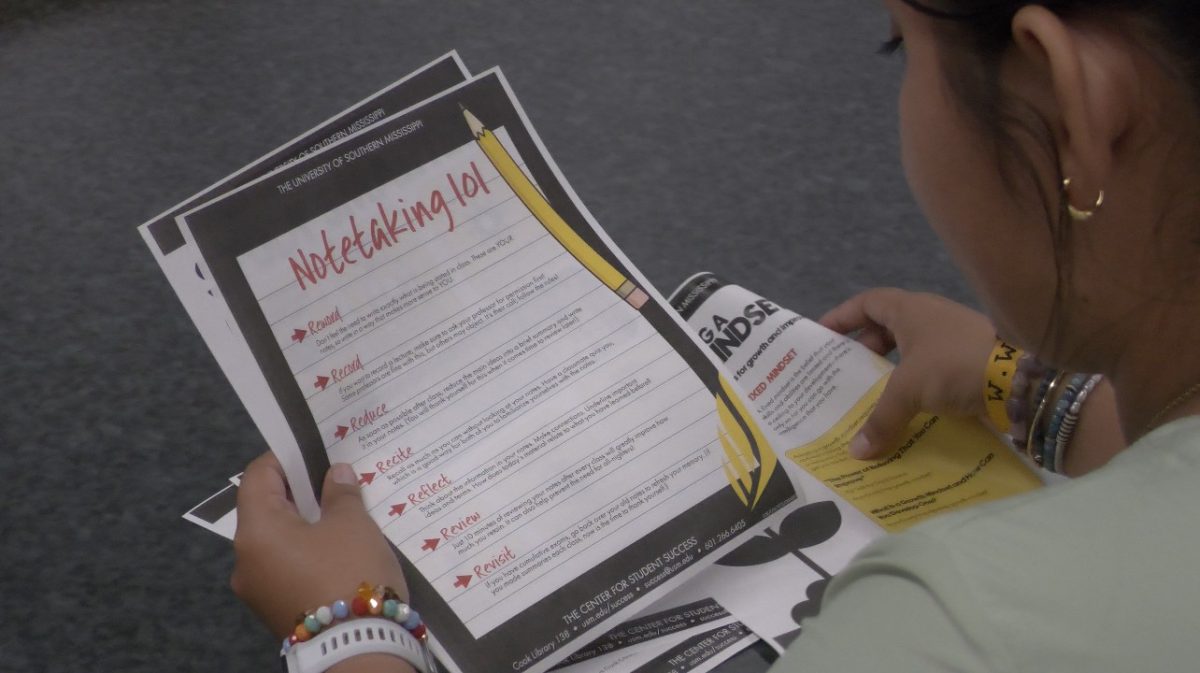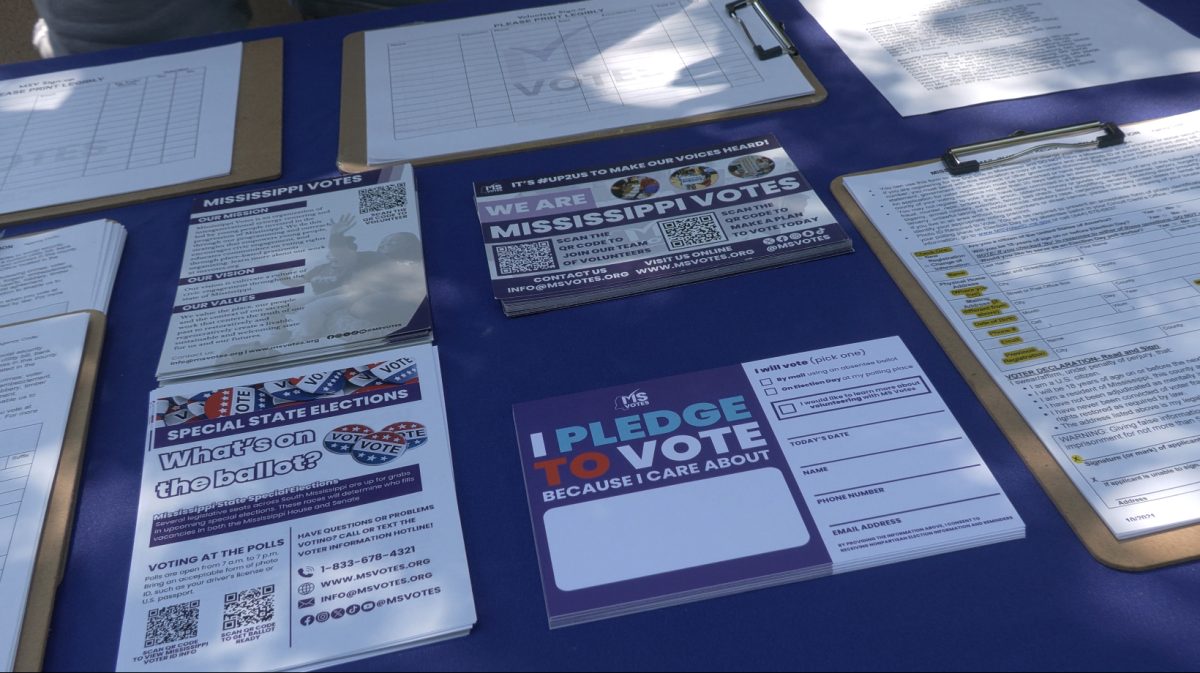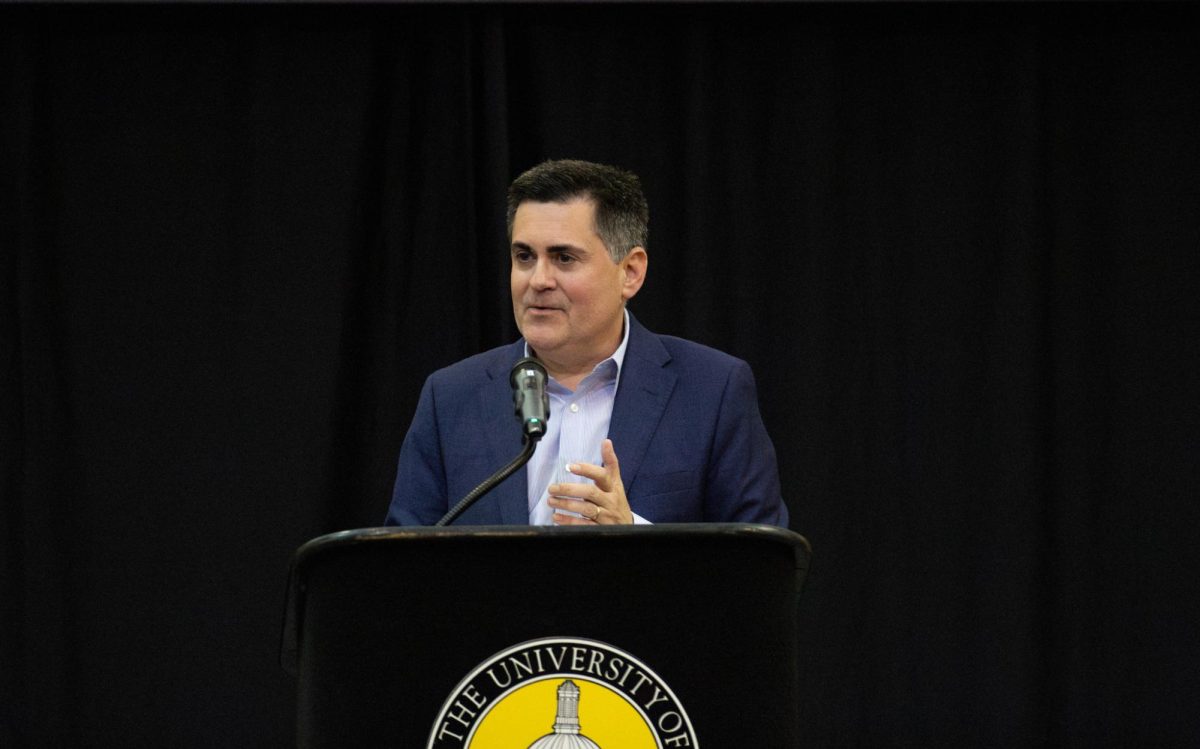USM Students for Human Rights presented Advocates for Freedom Thursday night in Joseph Green Hall. AFF is a faith-based organization whose mission is to provide resources, education and training to bring awareness to human trafficking.
‘Human trafficking’ is an umbrella term for when an individual is compelled into involuntary servitude. Although it is not legal, it continues to happen.
“People being used as items, that’s human trafficking,” said Abby Birkey, AFF member. “Drugs run out and you have to go back to your dealer, but humans are reusable. So, it’s a very lucrative business.”
According to AFF, financial struggles, emotional battles, anything that would place a person in a position in which they are open to manipulation can make a person fall into the business. Any face can fit the rubric of human trafficking.
People are coerced with promises of friendship or money. The initial consent to participate in these types of labors is not determinative. When the person is held, whether by psychological or physical force, the person is a trafficking victim.
“[Traffickers] see people’s dreams and steal them,” Birkey said. “They use these dreams as a tool to get what they want.”
People are enslaved for a profit and can be sold multiple times in a day. According to the U.S. State Department, human trafficking profits amount to nearly 35 billion dollars a day, the second most profitable business in America.
Speakers at the event explained that leaving the industry can be extremely difficult due to the meticulously organized systems and a lack of public awareness.
“Pimps run in circuits all across the United States; they never stay in one place,” said AFF Executive Director and Founder Susie Harvill. “They have their own language. A ‘stable’ is not a place for horses or cattle: it is the people that they are running. In the stable, there can be a duck, a jasper, a swan. There are lists upon lists of ‘-isms.’”
Harvill said recovery can be as difficult as training a right-handed person to write with their left. It can take many months or even years to undo the effect of trafficking.
It is a supply-and-demand business. According to AFF, 56 percent of all the pornography in the world is exported from America. That is 450 million new pictures a day, 365 days a year.
“Where the mind goes, the body follows,” Harvill said. “If you really want money, you will get money. On the other side, if you really want sex, you will get sex.”
Harvill said trafficking areas include tourist destinations like the coast, where people come through looking for recreation, stay for a brief time and leave.
“Ordering people [in sex-trafficking] is like ordering pizza,” she said. “Would you like the 12 year old and the 18 year old? This or that action? Here is the cost,” Harvill said.
AFF urges people to be aware of the signs.
“Pay attention; I used to live in a gated apartment complex where girls would leave around midnight with bags and load into these vans,” said AFF member Sharon Robbins, who was once a victim of trafficking. “Eventually new girls would move in. Something just was not right.”
USM Students for Human Rights meets every Monday at 7:30 p.m. For more information, visit their Facebook page at Southern Miss Students for Human Rights.































